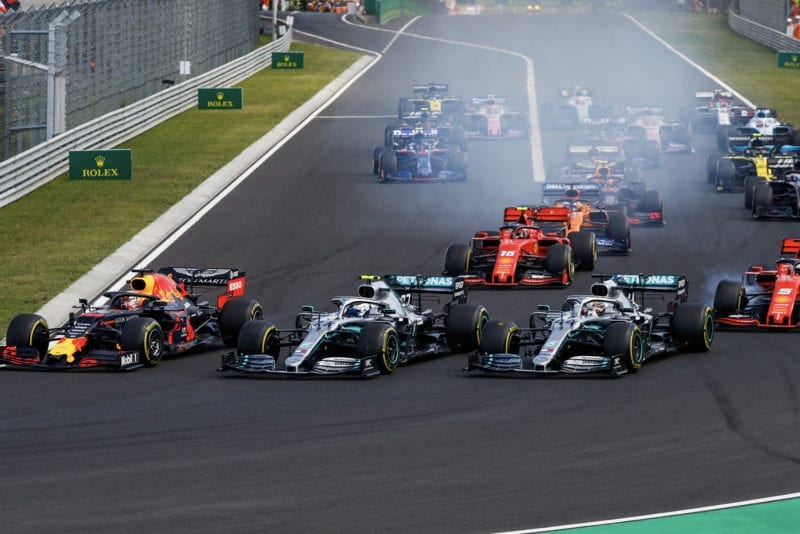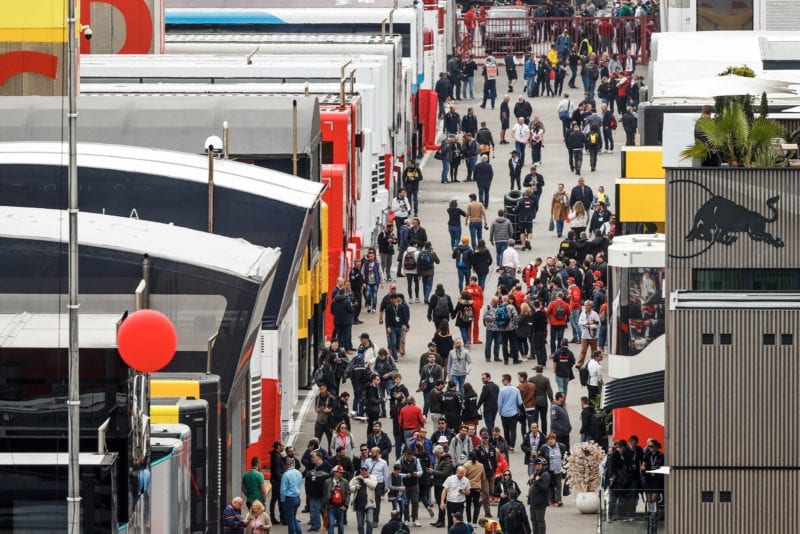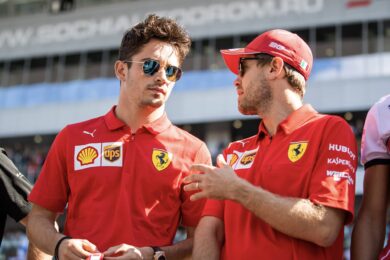By using hotels close to each venue that are reserved solely for the sport, those traveling would essentially be isolated, which would continue by transferring them to and from the circuit together in coaches. Protective equipment such as face masks could also be used as required at the track if local advice requests it.
Essentially, if you can guarantee all those traveling are virus-free, can keep them socially distant from anyone outside F1 from the moment they are tested to the moment they return home, you’ve got a chance.
These extensive measures make double-header races at the same venue more likely. Ross Brawn has said: “It’s very attractive to keep everyone in that environment, within that biosphere that we want to create, for another race.”
But maintaining this bubble will involve testing coach drivers, pilots, hotel workers, marshals… something that is only going to be remotely possible once governments are satisfied they have the capacity to do so.
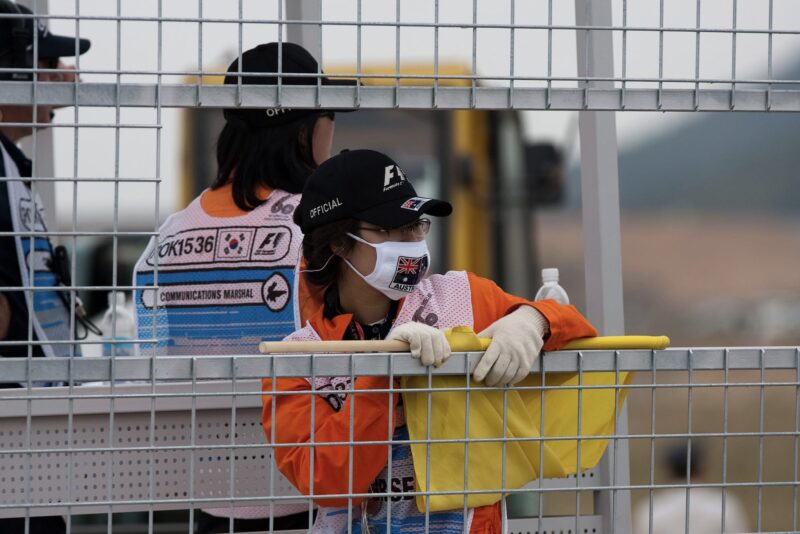
Masks could be mandatory at tracks
Grand Prix Photo
Now, why should F1 get such treatment? Because it has the infrastructure and financial ability to push ahead, while also attracting a large global audience for each event. FIA president Jean Todt has also now confirmed that the learnings will be used to help other categories approach racing again in a Covid-19-hit world.
There still remains a chicken and egg scenario, because F1 is trying to outline a calendar, but needs to convince hosts that it can proceed safely. Successfully execute an event, and more races in Europe can follow, but what those European rounds will comprise of is another strand of F1’s current workload.
The French Grand Prix will not go ahead this year – at least not as originally billed – and Monaco is definitely off, while venues such as Spa-Francorchamps and the Hungaroring now find their original dates ruled out by government restrictions.
So talks are ongoing with other circuits, including Hockenheim, about behind closed doors events. To enable this, race hosting fees are being completely revisited. With no fans, circuits can make very little money, after all.
Planning for the worst
To keep the teams in the loop on the plans for Austria and Silverstone, Sporting Working Group meetings are taking place regularly that largely feature ‘What if?’ scenarios being raised. And on that front, F1 is learning from its own errors.
The handling of the Australian Grand Prix was, quite frankly, a shambles. And at the very heart of it was a lack of preparation. F1 and the FIA had not planned for the worst case, and when it came to pass they were not ready for it. From the promoter’s point of view, the Australian Grand Prix Corporation had probably realised the sport didn’t have an emergency plan in place and that worked just fine for them, because they obviously wanted the event to go ahead.
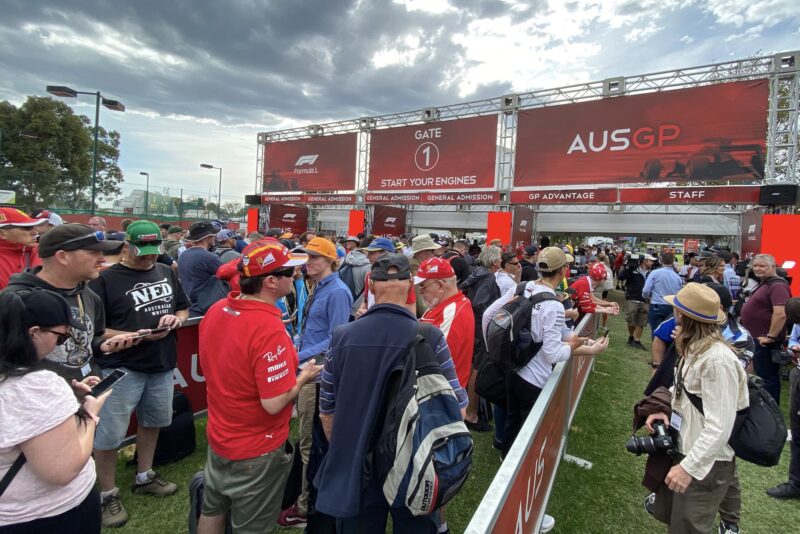
Spectators queue at Albert Park – not realising that the first race of 2020 had been cancelled
Grand Prix Photo
McLaren of course was ready for the scenario that unfolded, but its planned response had not been shared with F1 before it was needed. Since then, the evolving situation has been handled much better, and now they are all at least on the same page with the planning process for a season restart, even if the picture remains far from clear.
There might be talk of the overall calendar, but team sources suggest the focus is very much on the opening rounds at this stage. If F1 is to restart, then it has to make a success of it. There cannot afford to be a repeat of Australia, so any events in Austria and Silverstone have to be thoroughly planned out.
Once they are, then attention will turn to flyaways that are looking like they will demand those involved stay out in a specific region for each swing of races. But that’s only a bridge the sport can cross if and when it pulls off that crucial opening round.
